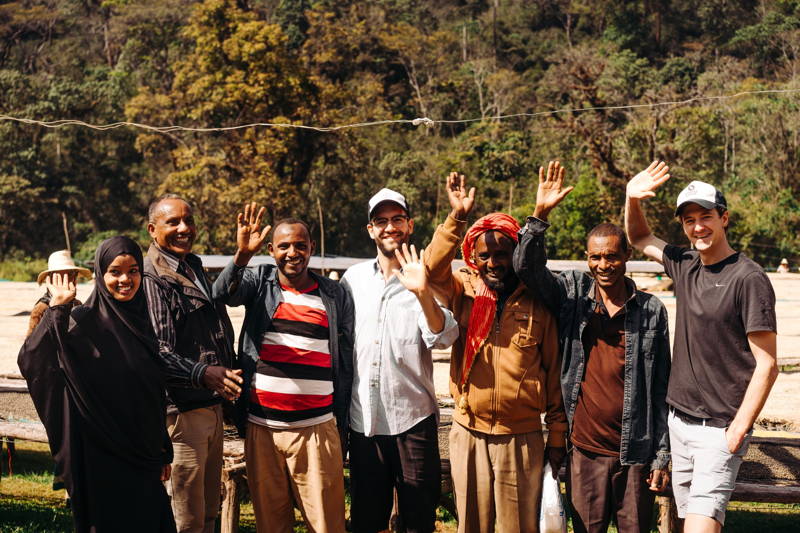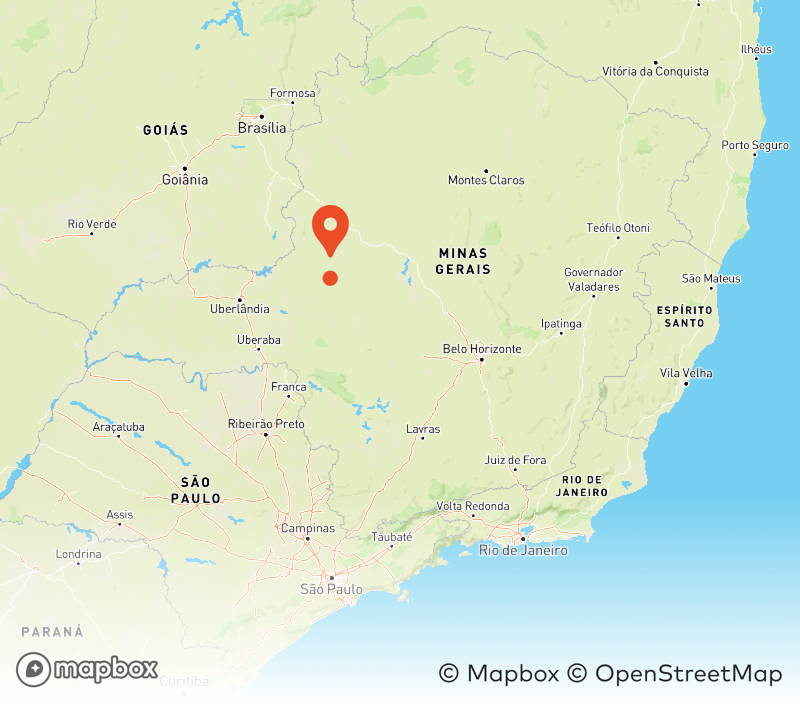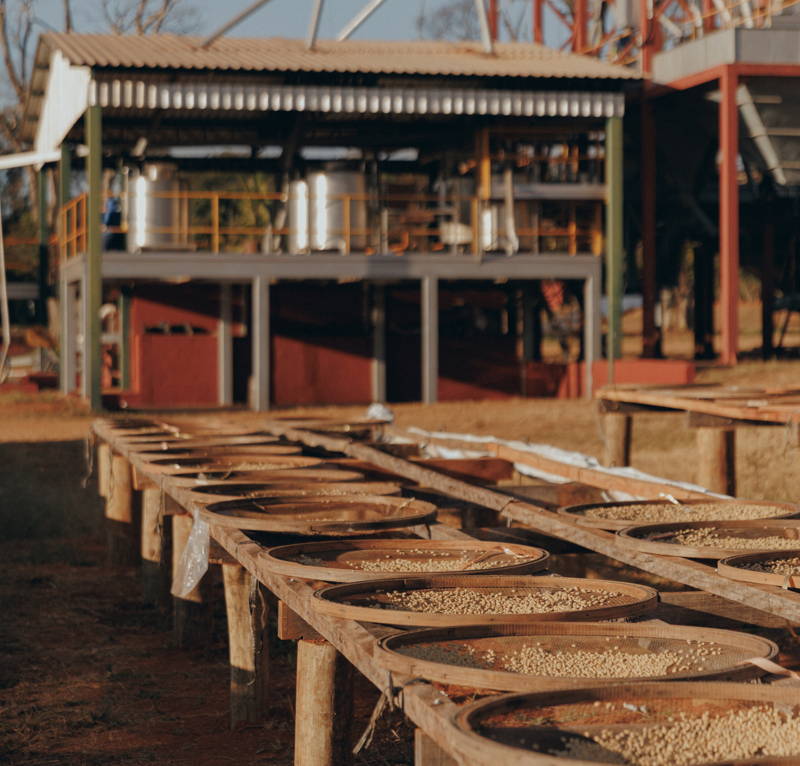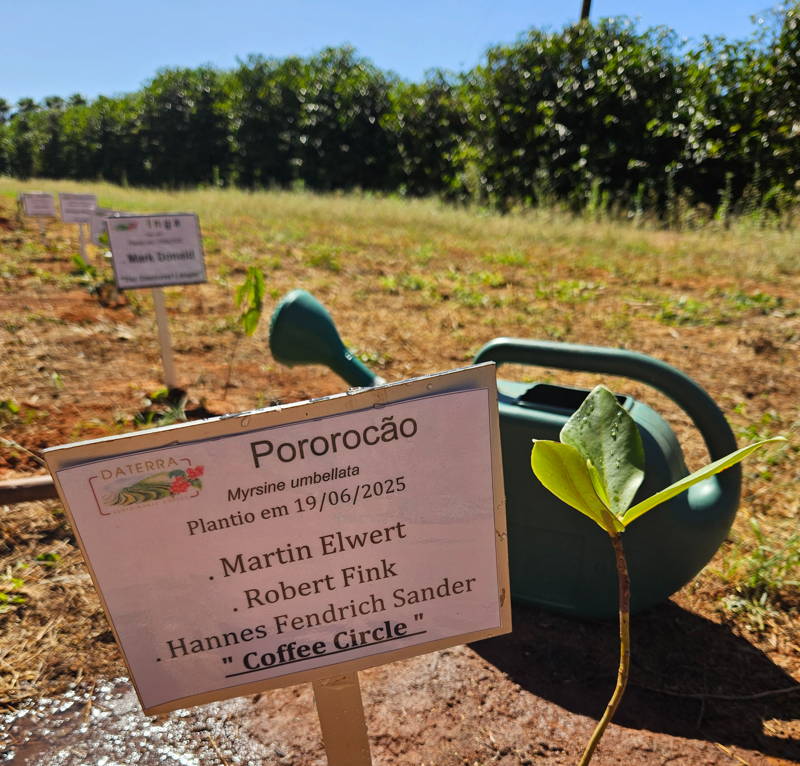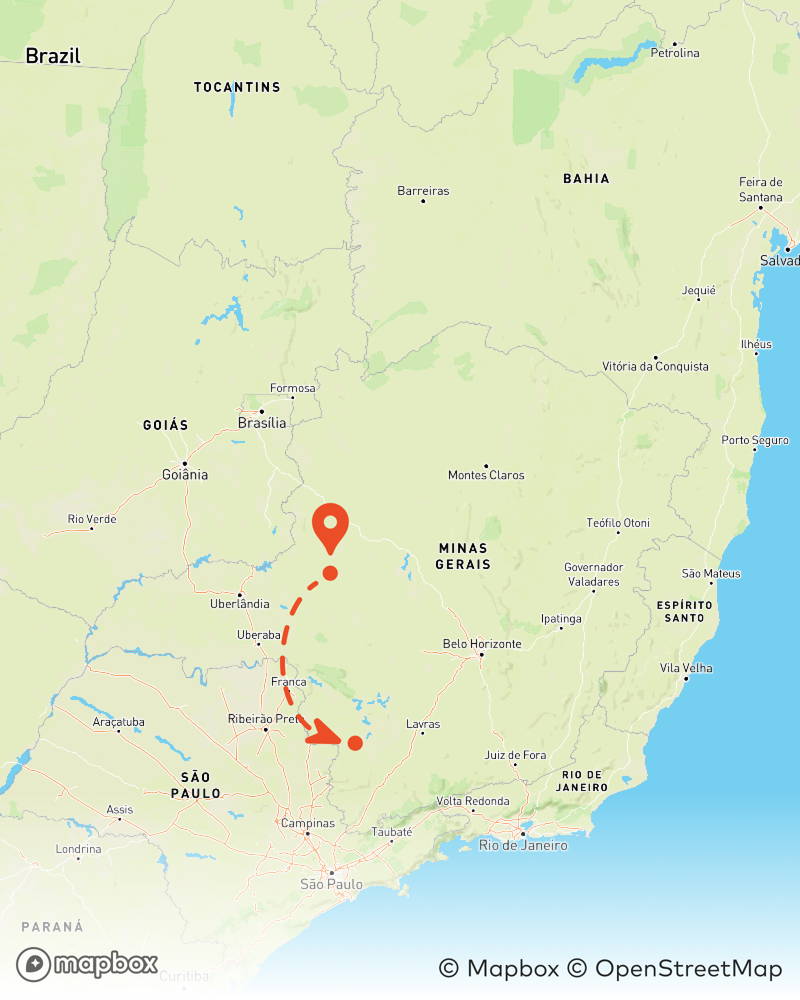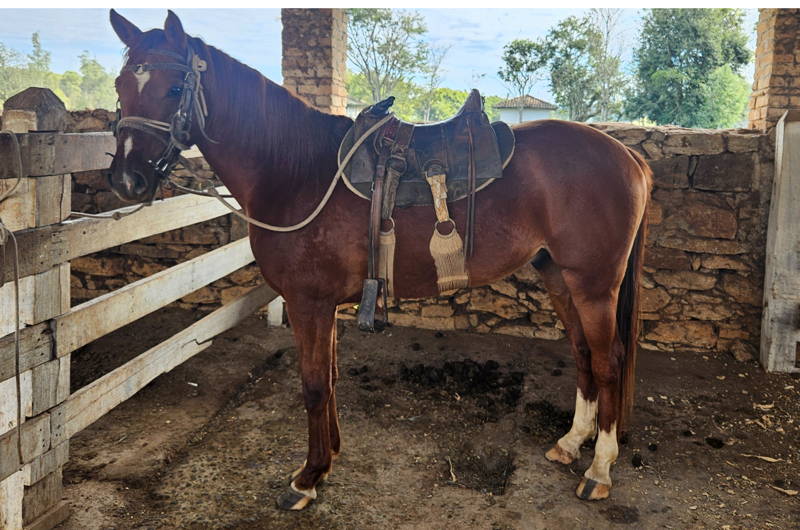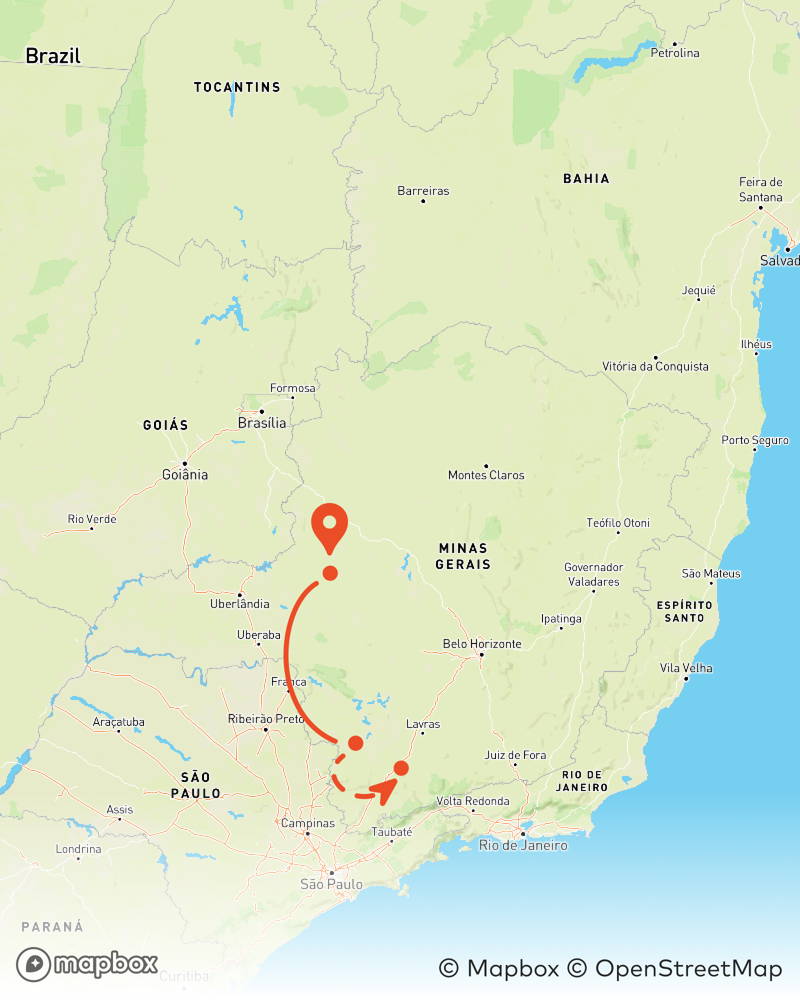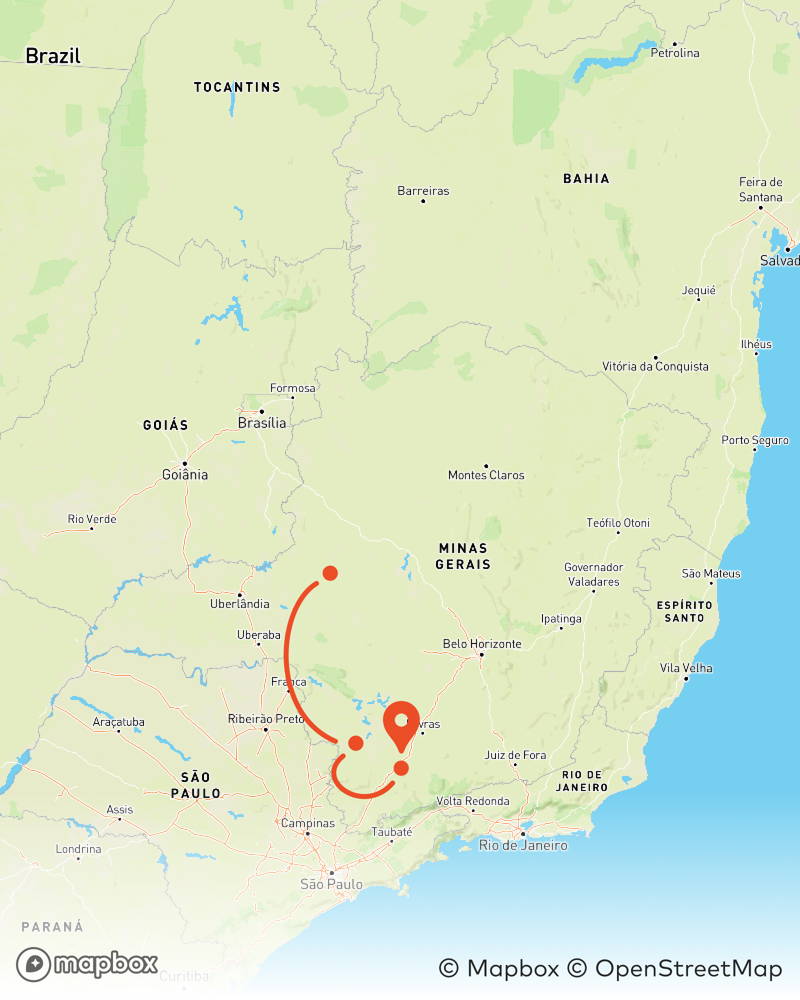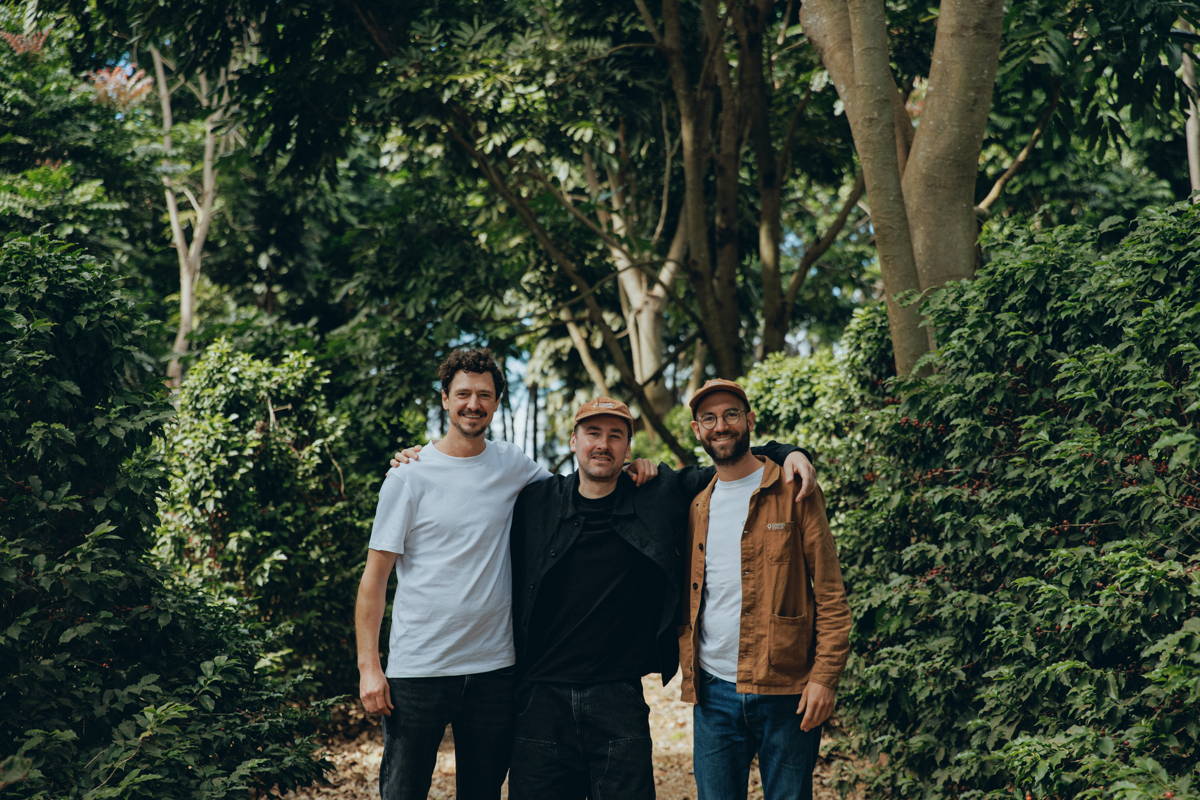
Bom Dia from Brazil! Seven days, three farms, countless impressions – it’s June 2025, and Coffee Circle founder Martin has finally landed in Brazil again, together with Hannes (Head of Coffee). Also joining the trip is Robert, our Roast Master and Coffee Quality Manager. Over the next week, they’ll be visiting our long-standing partners Daterra and APAS, making new contacts, and exploring how coffee production is evolving in a country that produces about one-third of the world’s coffee and faces major climate challenges.
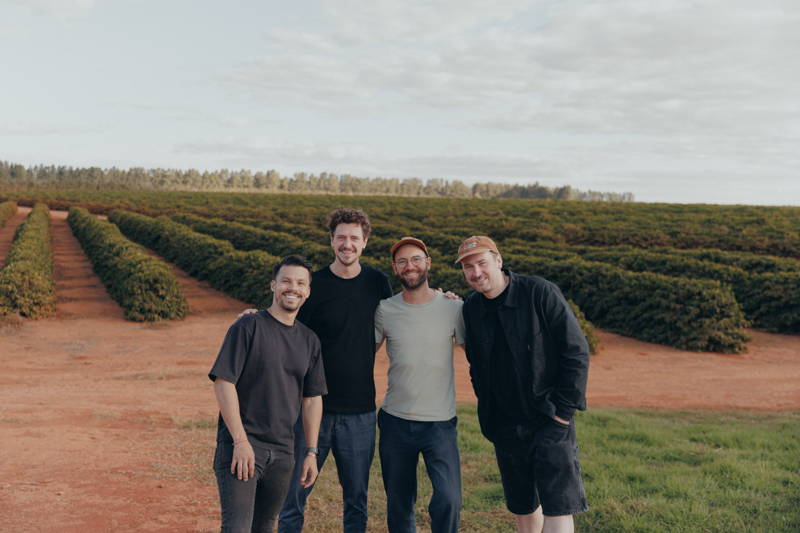
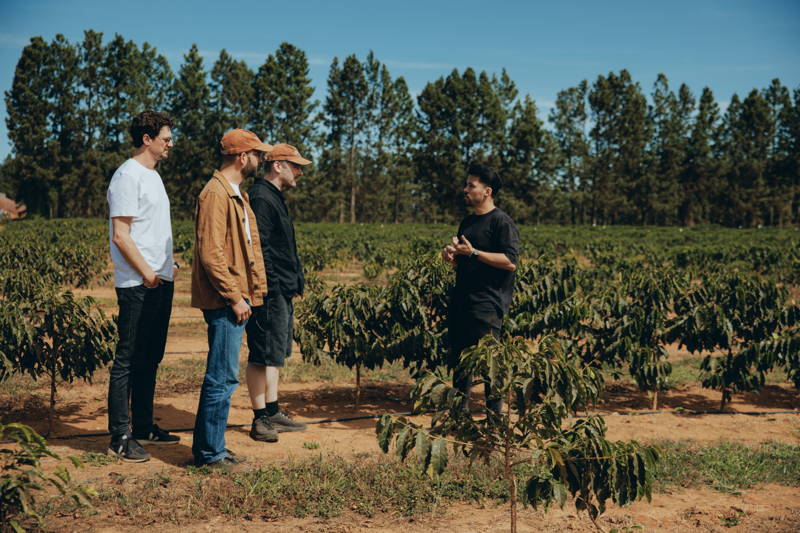
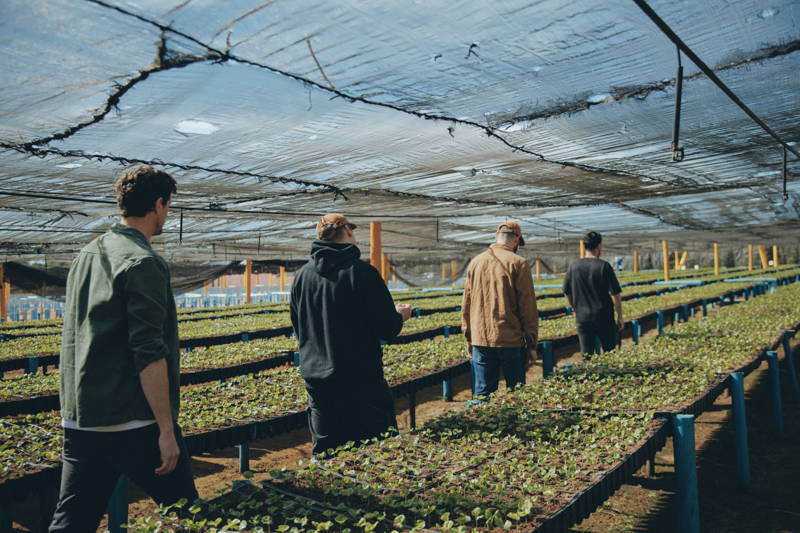
First Stop: Daterra, Minas Gerais
Their first stop takes them to “Daterra – Sustainable Coffee”, a farm that has been working with us for many years. This is where coffees like Cerrado or our new filter coffee Daterra originate. The farm is located near the city of Patrocínio in the southeastern Cerrado region of Minas Gerais, the country’s oldest coffee-growing area. Instead of monocultures, Daterra focuses on diversity – divided into 216 mini-farms, each only 5 to 15 hectares in size. Coffee plants grow here under ideal climate conditions at elevations up to 1,200 meters. Wind, sun, and soil give the Arabica plants their distinctive flavors. The farm has become a hub for barista world champions and coffee experts who continually develop new processes and microlots. Not surprisingly, Daterra is fully dedicated to producing exceptional specialty coffees. Daterra was also the first Rainforest Alliance-certified farm in Brazil. In 2015, it was named Brazil’s most sustainable farm, receiving the “Prêmio Fazenda Sustentável” award from Globo Rural, the country’s largest agricultural magazine.
Beyond that, Daterra blends various Arabica varieties to create especially diverse flavors and operates a superb quality lab where each harvest undergoes intensive evaluation. They rely on a mix of cultivation methods to counteract the effects of climate change and are actively experimenting with innovative processing techniques to create diverse, high-quality, and unique specialty coffees. One particularly impressive practice is how they determine the harvest time: even before the actual harvest, samples of coffee cherries are taken, processed, roasted, and tasted by the quality team. Only afterward do they decide which beans possess the right sweetness to be harvested – a process that even Hannes had never seen before.
The people behind Daterra produce their own compost, minimize water and fuel consumption, and have set the ambitious goal of planting three million trees by 2030. Daterra is located in a very dry region of Brazil and has been heavily affected by the consequences of climate change for several years, with higher temperatures and less rainfall. Last year, there were 197 consecutive days without any rain. To prepare for such extreme conditions, the farm is investing heavily in climate adaptation measures: irrigation systems are being expanded, and trees are planted strategically to create a more humid microclimate. Climate adaptation has now become an integral part of production costs.
Daterra’s ability to face change boldly and see opportunity in transformation is also evident in their willingness to experiment. Since 2019, we’ve been collaborating with Daterra on new fermentation methods. The coffee used for these experiments comes from a small plot of land that we’re allowed to use for this purpose.
Robert is the creative force behind these tests. Since last year, we’ve been experimenting with adding kefir during fermentation to influence the coffee’s flavor profile. This year, Robert was on-site at just the right time to add the kefir to the coffee cherries himself. However, the results won’t be ready to taste for another 2-3 months, as the coffee still needs to dry and be processed.
Curious? You can find photos and videos of their time in Brazil on our Coffee Circle Instagram account under the highlight „BRA 25“.
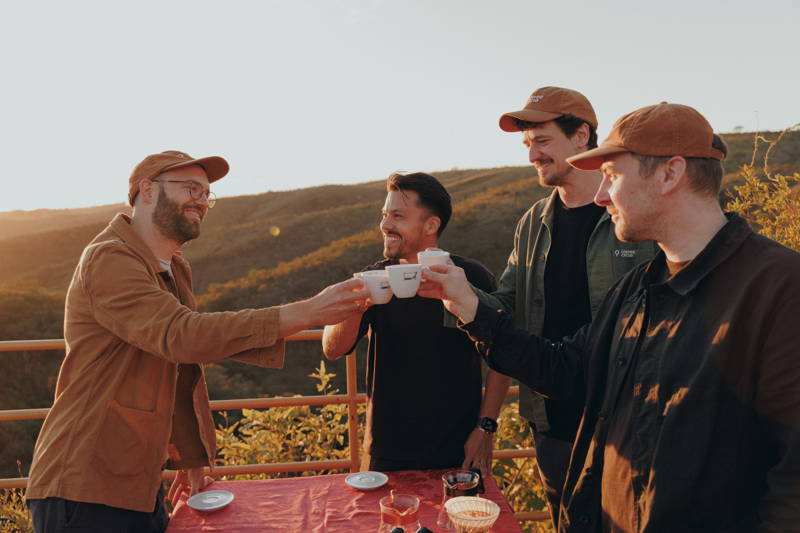
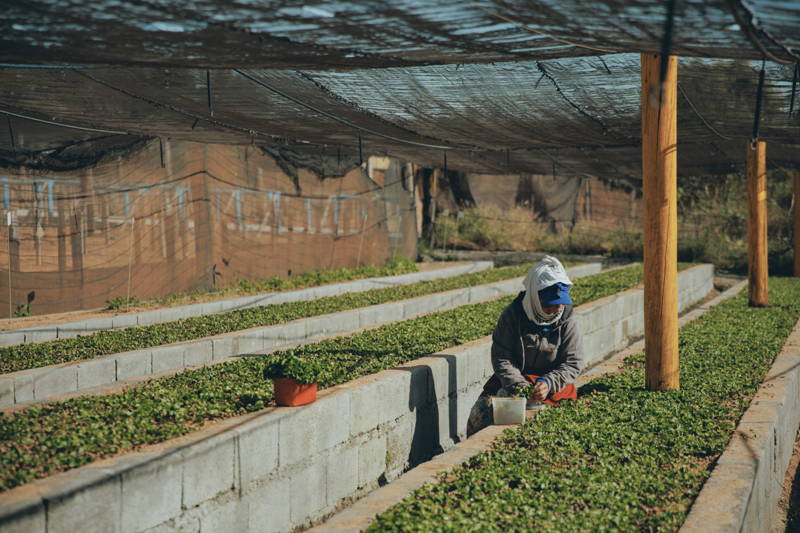
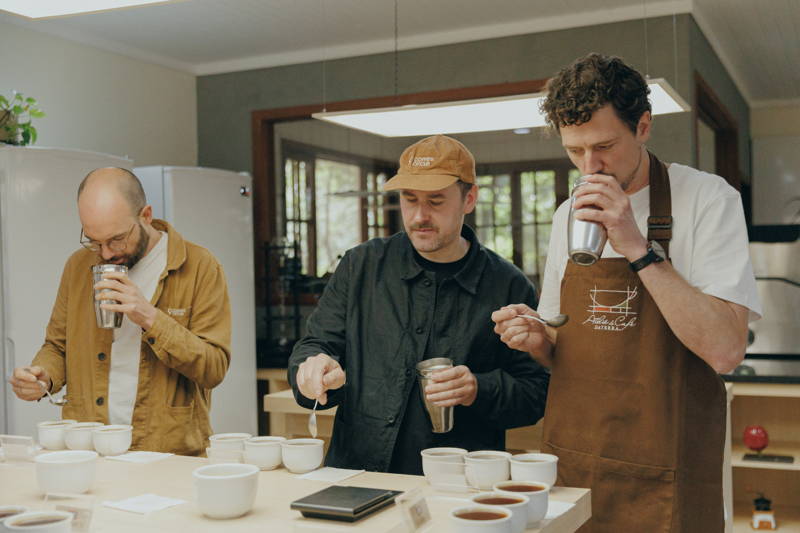
Second Stop: Monte Alegre, Minas Gerais
After their exciting time at Daterra, the three continue on to Monte Alegre, a farm in southern Minas Gerais, for a potential new partnership. Martin knows the owner, Hélio, through our friend Heleanna from our Ethiopian partner Moplaco.
Hélio runs a large, privately-owned farm that, despite its size, places significant emphasis on sustainability: waste materials are recycled, and the use of farm inputs is minimized. Hélio is a true multi-talent: besides coffee, he breeds horses and produces a variety of other products. So it’s no surprise that on a Saturday, Martin, Robert, and Hannes were spontaneously invited on a horseback discovery tour through the coffee forests. It’s a particularly exciting way to experience the farm up close and gain deeper insights into coffee cultivation – naturally in good company with Hélio himself.
Monte Alegre, like Daterra, is Rainforest Alliance-certified and impresses with consistently remarkable quality, achieved through modern mechanical sorting machines. Much is still harvested by hand, but labor shortages are a huge problem here – as they are almost everywhere in Brazil. Even with wages four times the minimum wage, it’s hardly possible to attract enough people for the labor-intensive handpicking. Mechanization seems inevitable. Thanks to mechanical sorting, Monte Alegre can offer coffees in all quality levels – from commercial products to large-scale fermentation experiments.
The three were particularly intrigued by an espresso blend that combines different processing methods – natural, pulped natural, and washed – to ensure a consistent flavor profile year after year. This coffee could be a perfect fit for our darker blends like Tiga Terra or House Blend Espresso and offers significant potential for a future partnership.
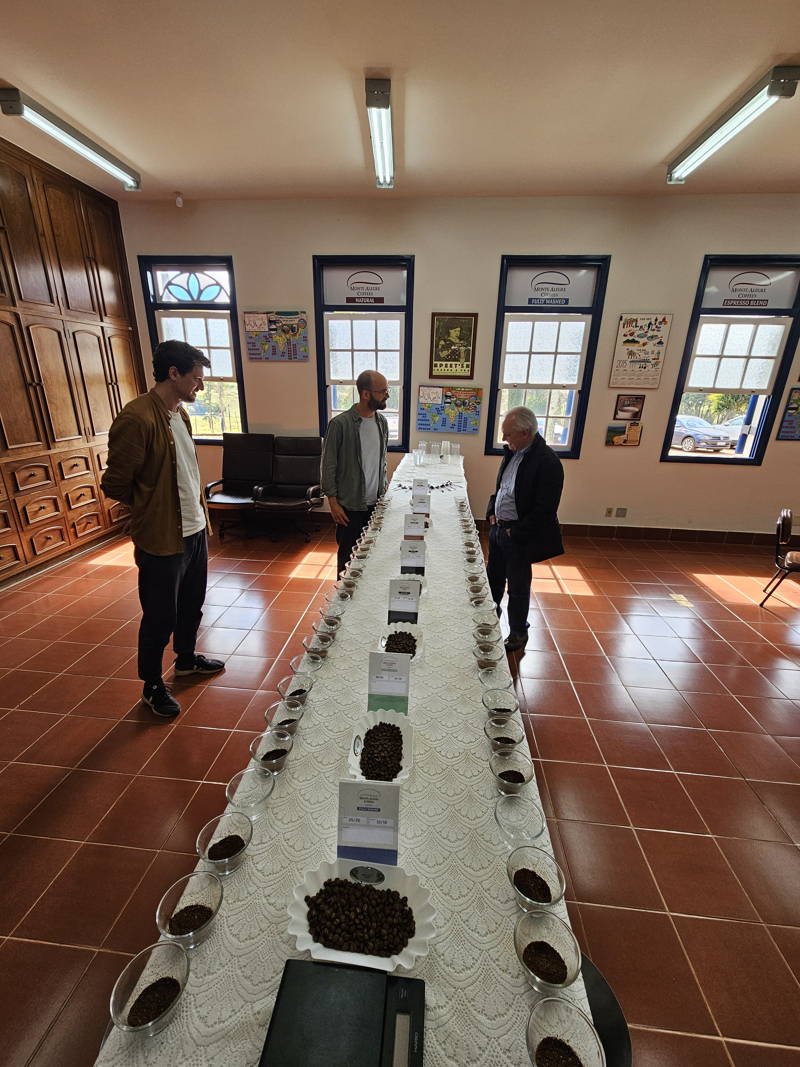
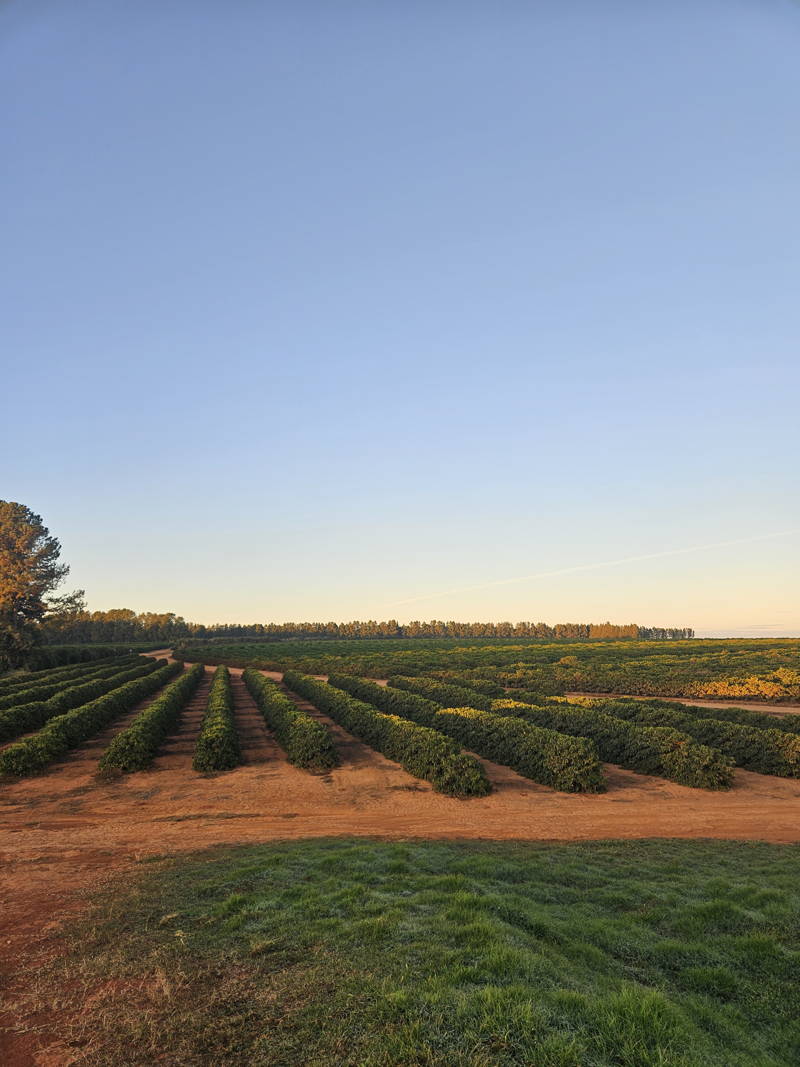
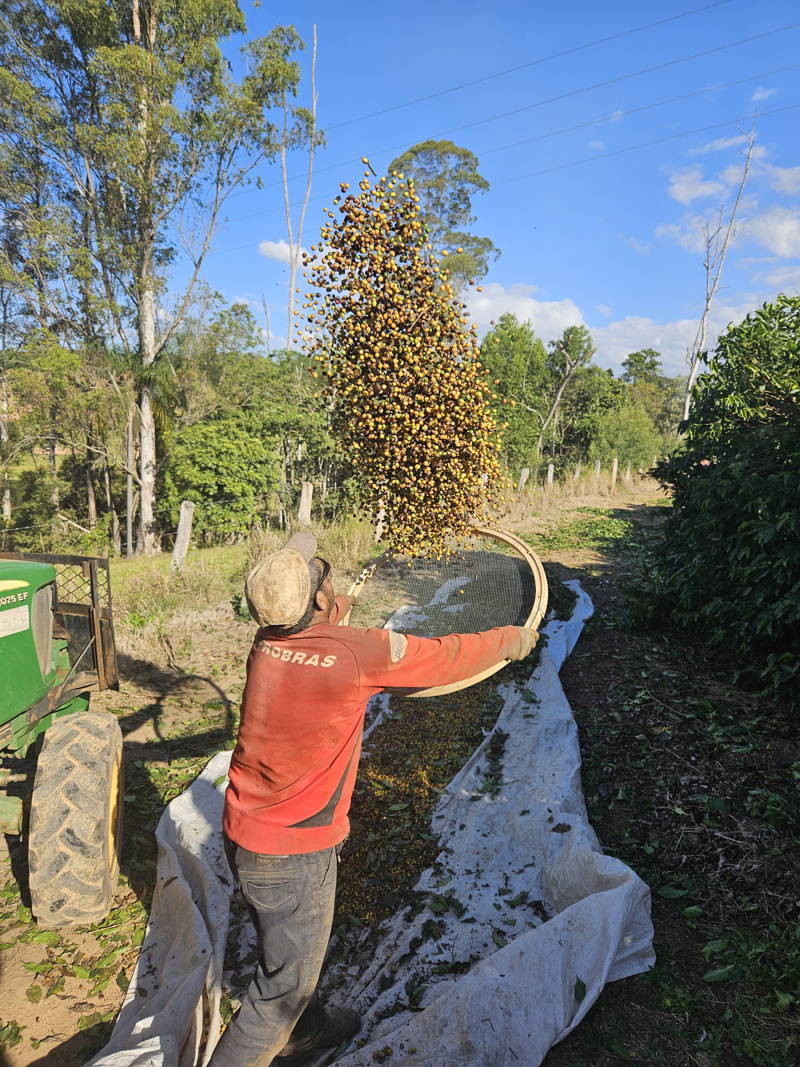
Last Stop: APAS, Mantiqueira de Minas
Their final stop takes Robert, Martin, and Hannes to APAS in Mantiqueira de Minas, a bit further south in the country. Compared to the large private farms, APAS is a small world of its own. Here, around 65 farmers have joined forces, each processing and drying their coffee themselves. There’s no centralized processing station, so the coffee is usually processed naturally.
The three visit the office, the cupping lab, and the farms of Ademilson, Alessandro, and Mauricio, with whom we’ve maintained long-standing partnerships. APAS has shown an impressive development since it was founded 17 years ago: from just 40 bags of coffee in the first year to now producing eight containers annually.
Recently, they even started offering organic-certified coffee – a rarity in Brazil and a testament to their commitment to sustainability. Coffees like the eponymous Apas come from this cooperative, as well as components used in blends like Toleyo and Yirga Santos.
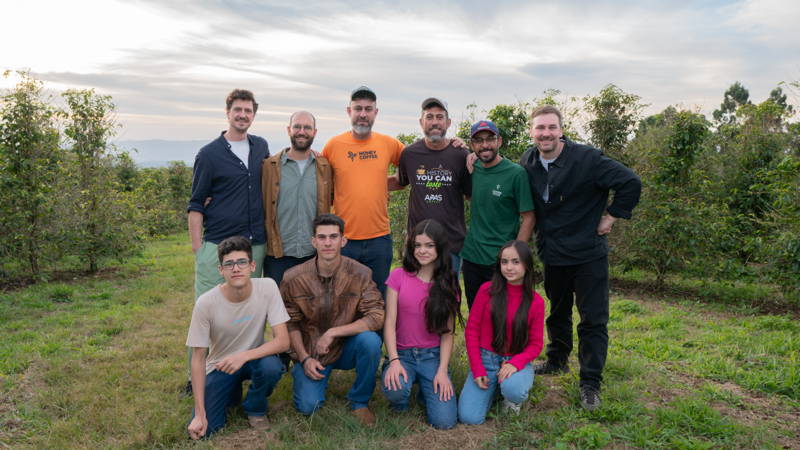
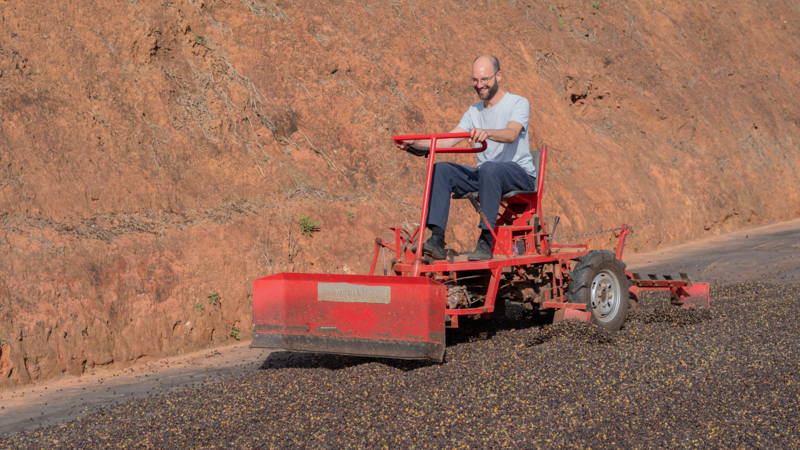
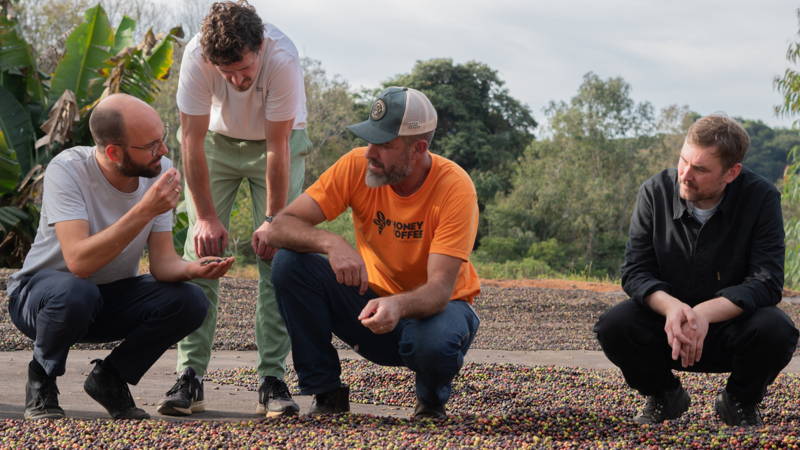
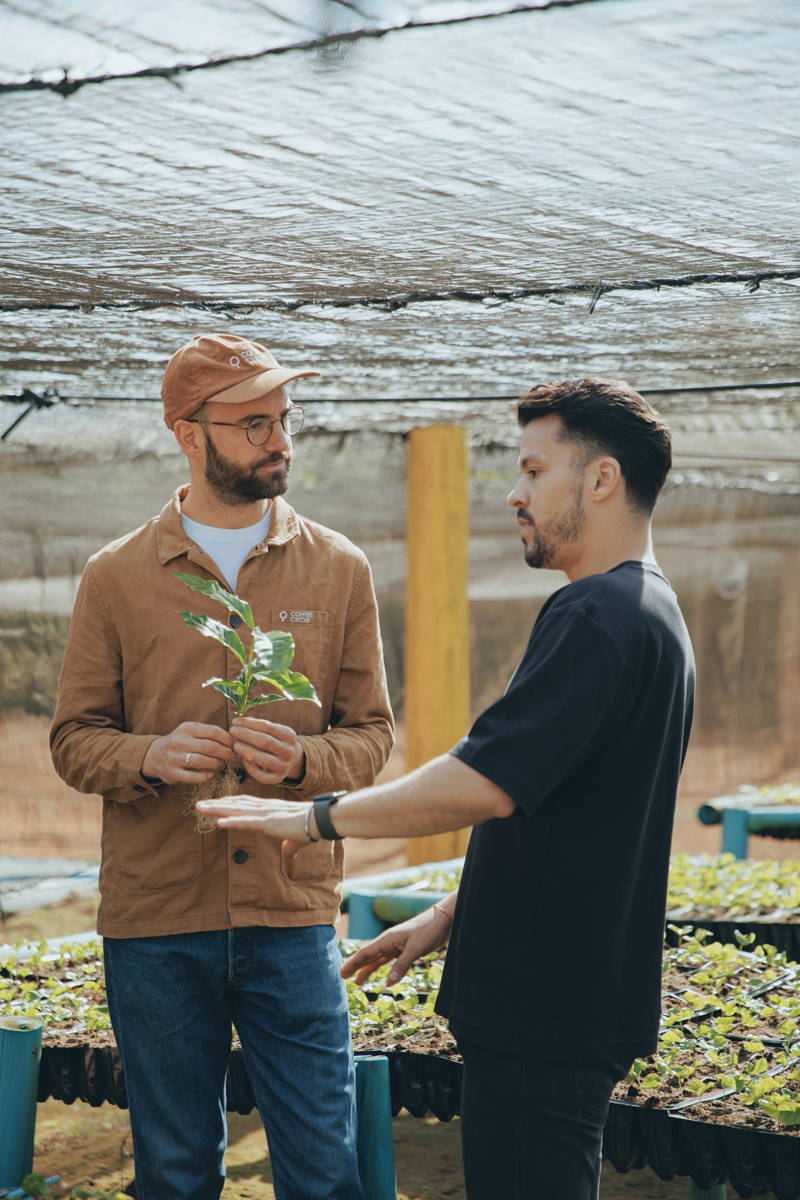
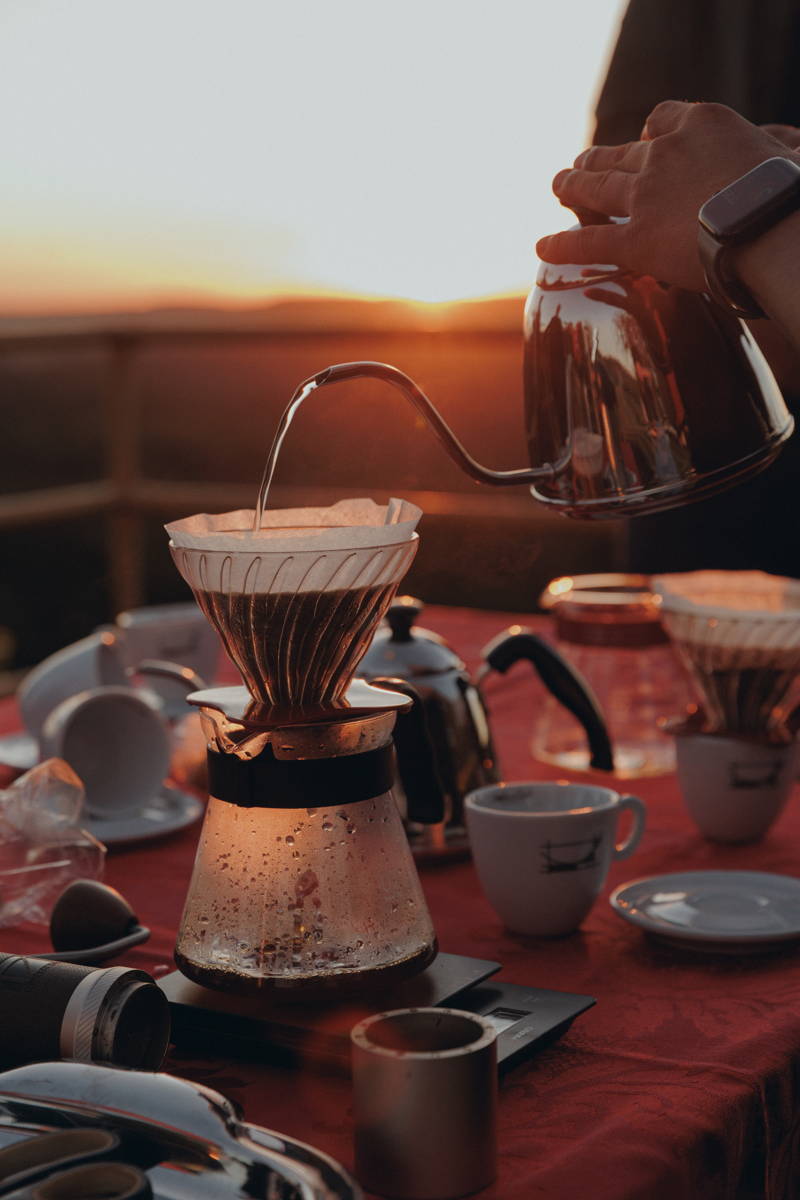
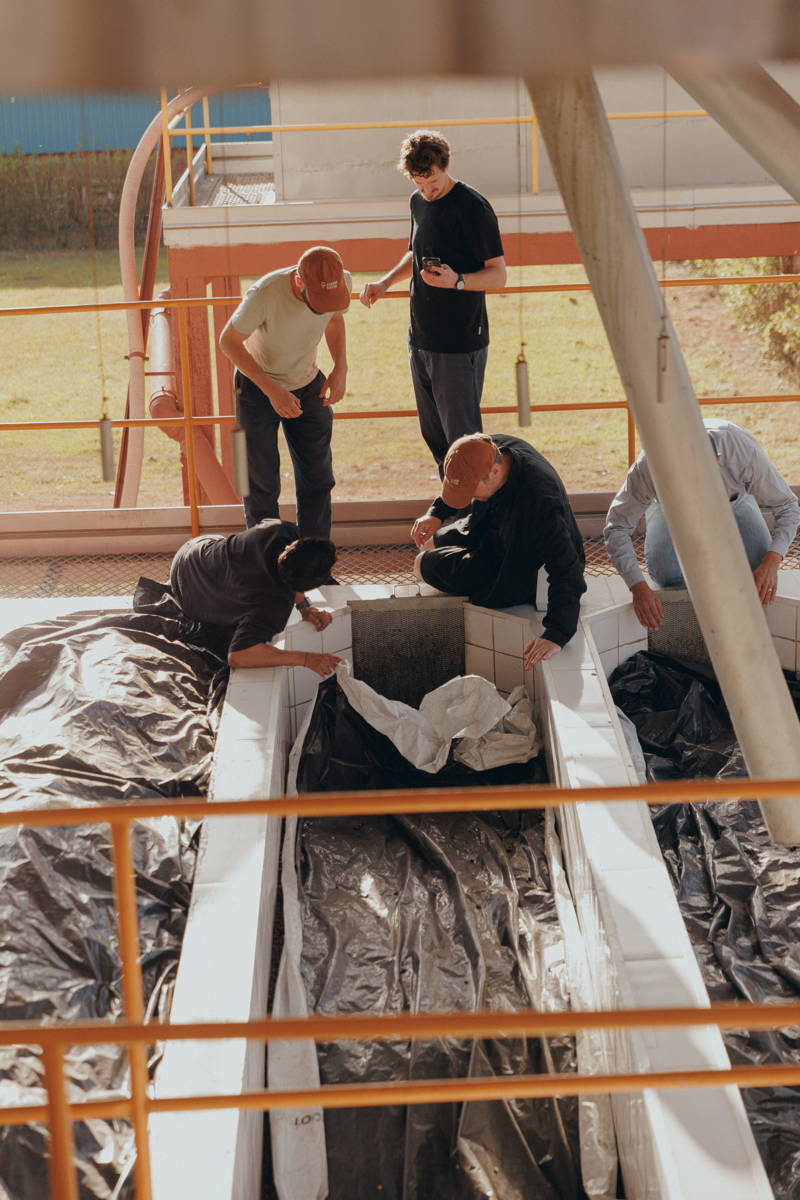
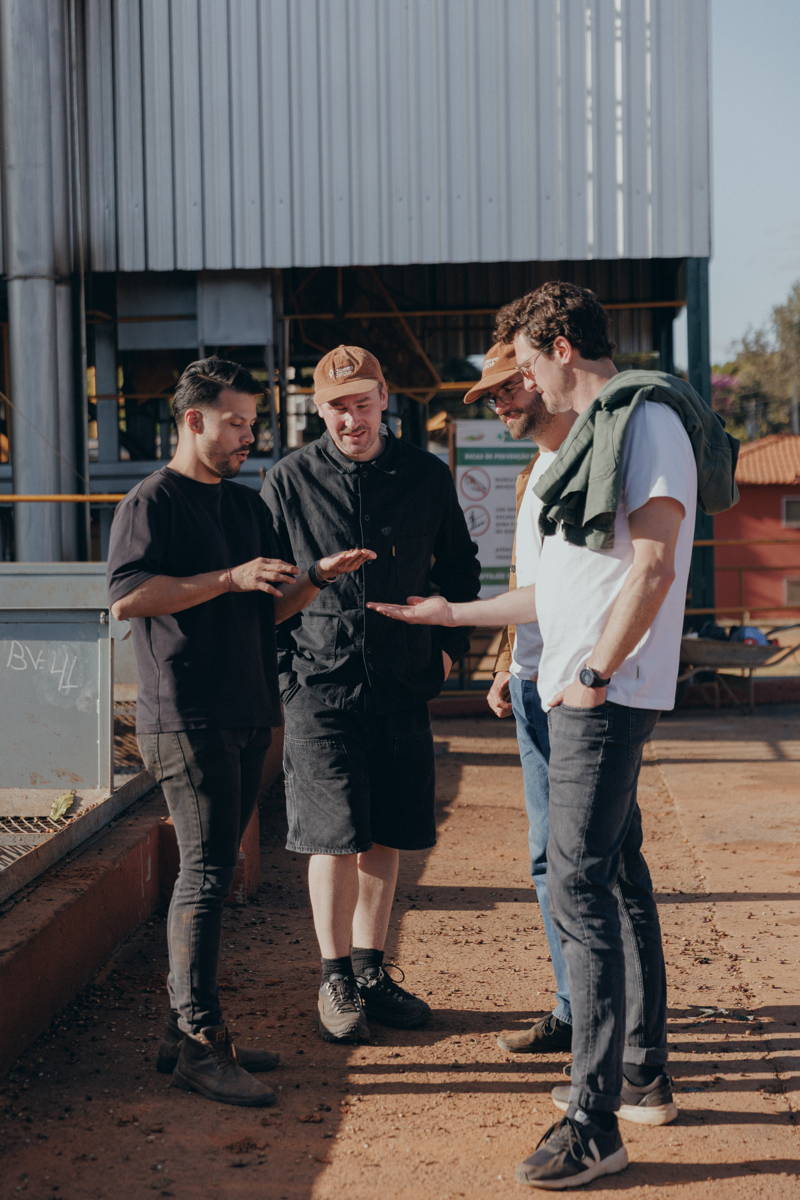
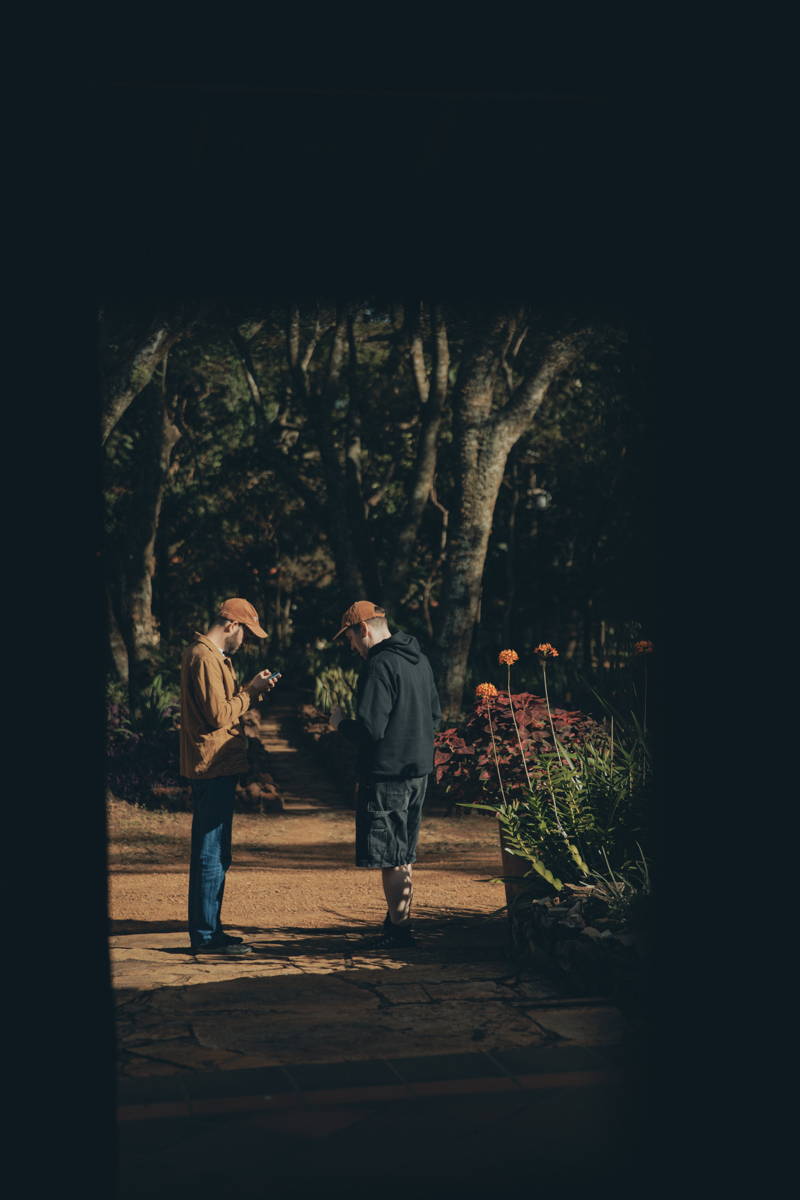
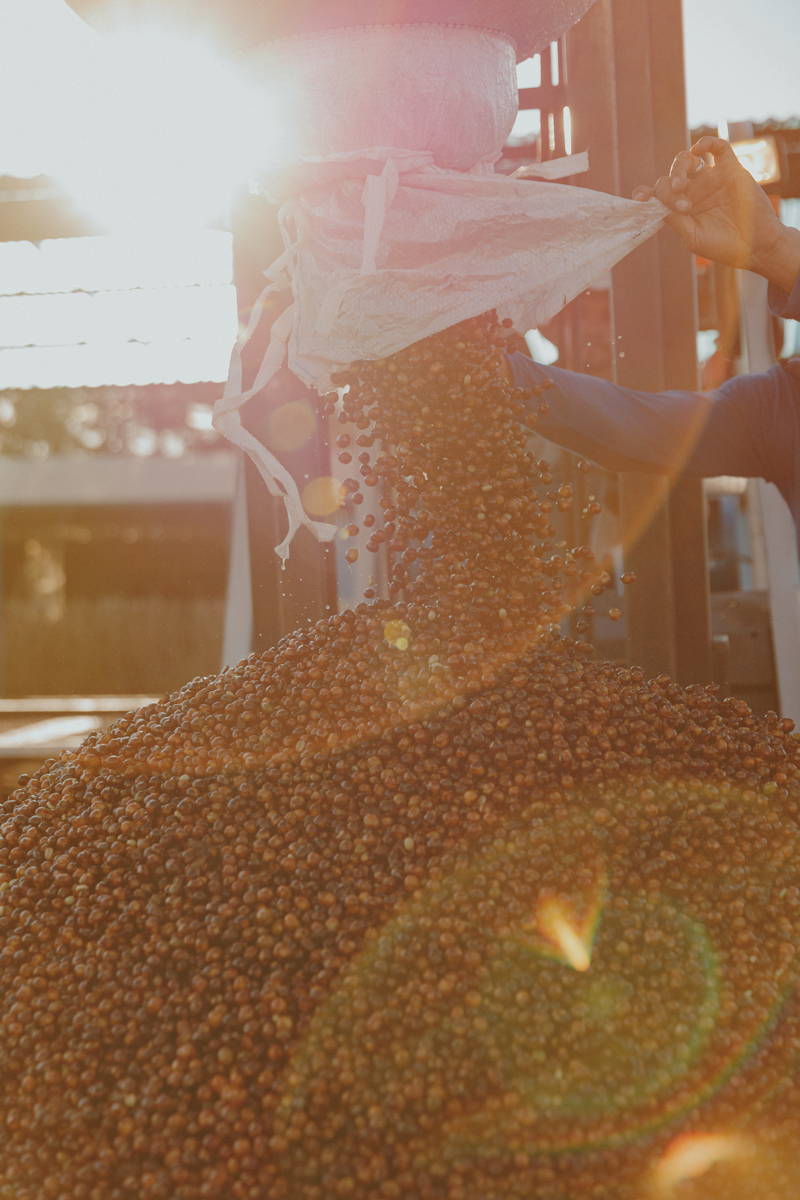
Conclusion
This journey once again highlighted for Martin, Hannes, and Robert how dramatically climate change is transforming Brazil’s coffee landscape. They gained fresh insights into the perspectives of both small and large coffee producers. Whether big farm or small cooperative – everyone is grappling with the same challenges.
Initiatives like developing drought-resistant varieties by World Coffee Research and Brazilian research institutes are therefore incredibly important. Moreover, the shortage of labor remains a huge challenge, which so far can only be addressed through increased mechanization. At the same time, the passion for coffee is evident in every conversation and every farm visit. So much dedication and heart go into every single bean that the three return to Berlin with countless new impressions and an even greater enthusiasm for Brazilian coffee.
Tchau e até logo – over a cup of coffee!
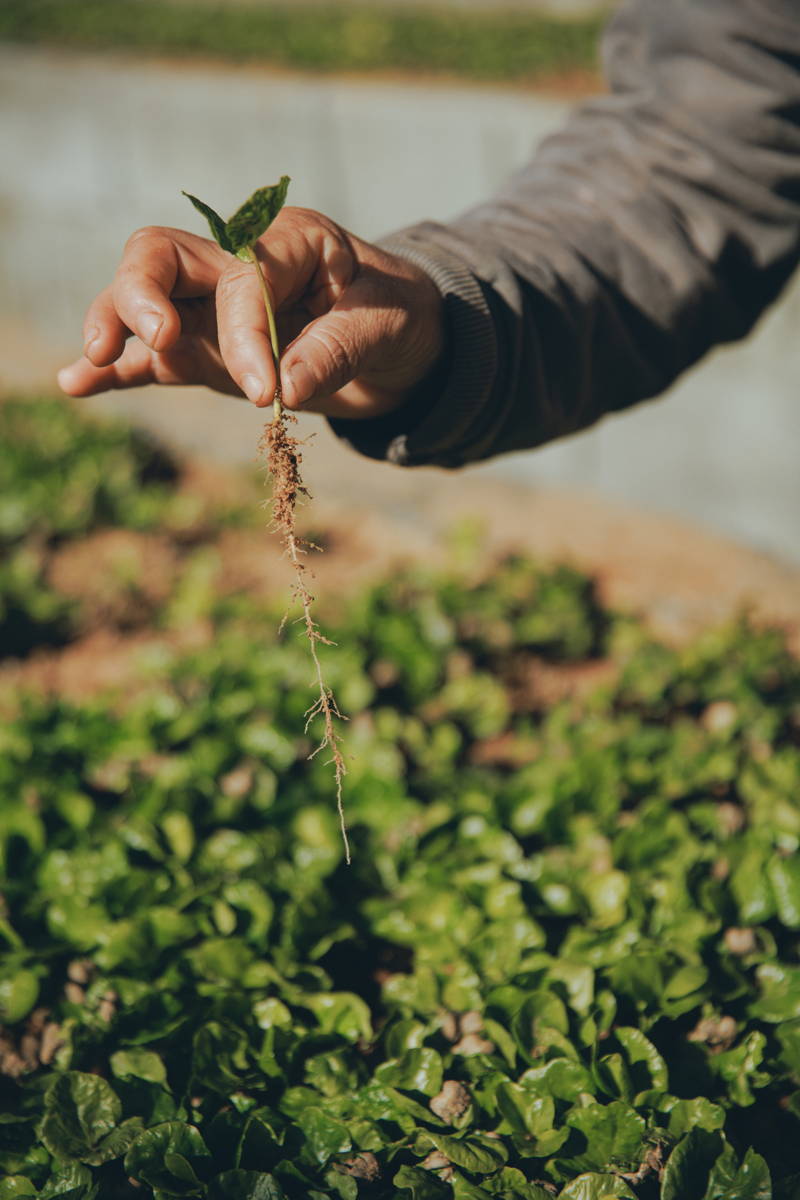
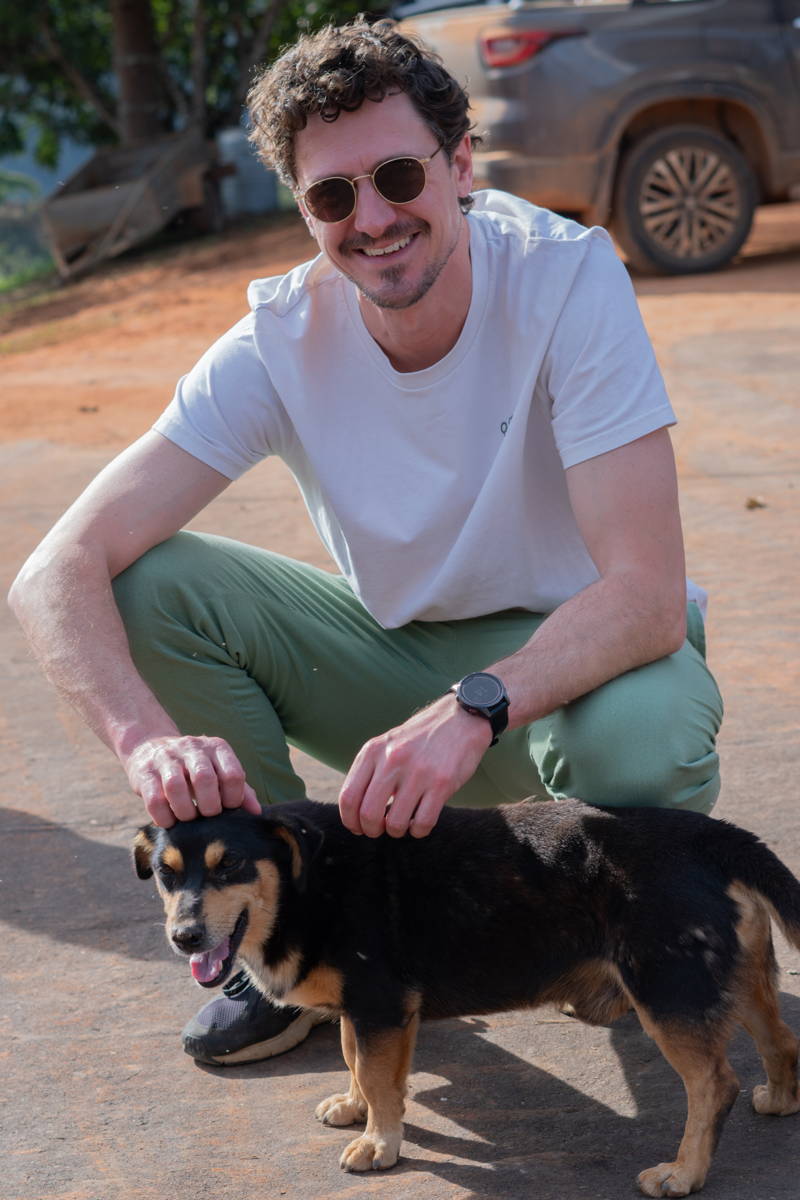
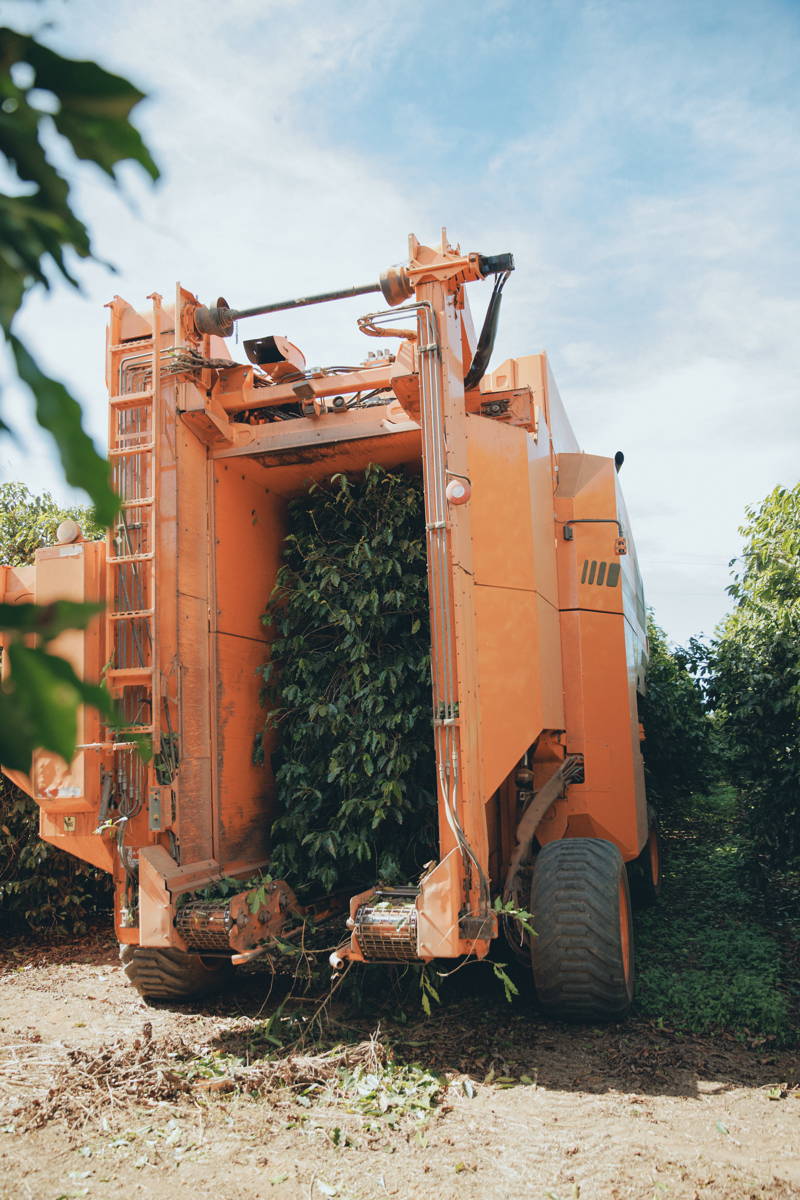
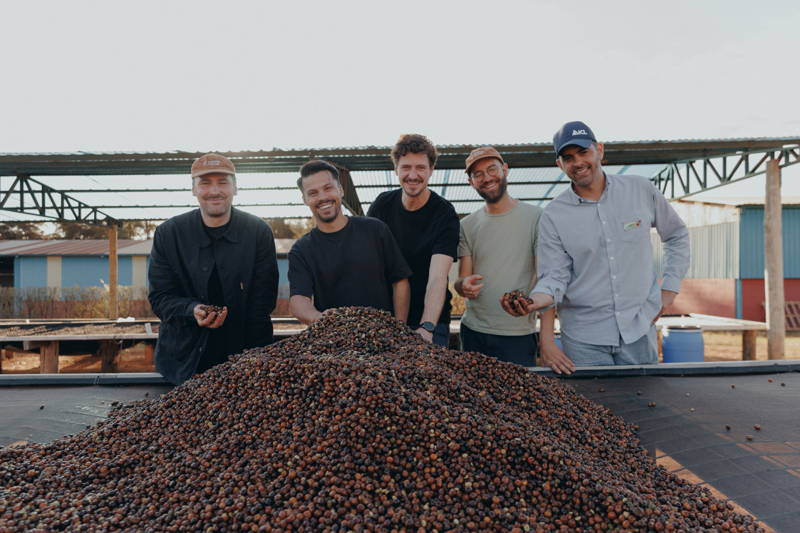
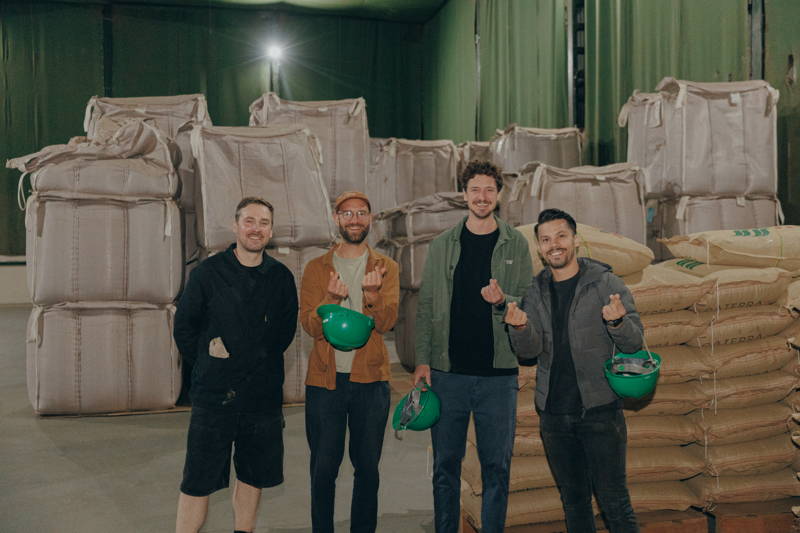
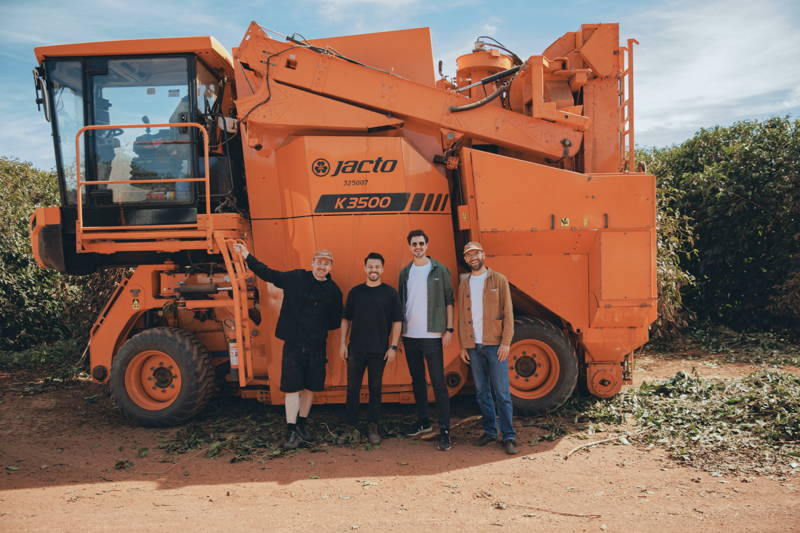
Discover our Coffees from Brazil

With every cup of coffee, you support our projects in Ethiopia and other coffee-growing regions. Together with you, we’re improving the lives of coffee farmers and their families!
